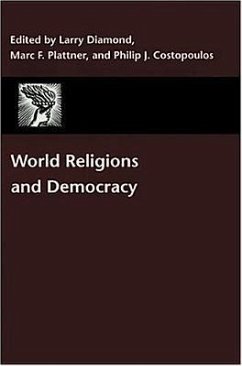
The Rise of Islamic Political Movements and Parties
Morocco, Turkey and Jordan
Versandkostenfrei!
Versandfertig in über 4 Wochen
122,99 €
inkl. MwSt.

PAYBACK Punkte
61 °P sammeln!
'Kirdis's volume is a most welcome contribution to the growing literature on Arab political parties. In this insightful study, Kirdis provides a compelling analysis of how islamist organizations decide to either form a political party or continue their activism through more informal channels. This book is a fascinating empirical study focusing on the internal workings and debates of Islamist movements.' Francesco Cavatorta, Professor of Political Science, Laval University Explores the strategic decision-making of Islamic political movements in Morocco, Turkey and Jordan Although regarded as a ...
'Kirdis's volume is a most welcome contribution to the growing literature on Arab political parties. In this insightful study, Kirdis provides a compelling analysis of how islamist organizations decide to either form a political party or continue their activism through more informal channels. This book is a fascinating empirical study focusing on the internal workings and debates of Islamist movements.' Francesco Cavatorta, Professor of Political Science, Laval University Explores the strategic decision-making of Islamic political movements in Morocco, Turkey and Jordan Although regarded as a single community of Islamists, Islamic political movements utilise vastly different means to pursue their goals. This book examines why some Islamic movements facing the same socio-political structures pursue different political paths, while their counterparts in diverse contexts make similar political choices. Based on qualitative fieldwork involving personal interviews with Islamic politicians, journalists, and ideologues - conducted both before and after the Arab Spring - author Esen Kirdis draws close comparisons between six Islamic movements in Jordan, Morocco and Turkey. She analyses how some Islamic movements decide to form a political party to run in elections, while their counterparts in the same country reject doing so and instead engage in political activism as a social movement through informal channels. More broadly, the study demonstrates the role of internal factors, ideological priorities and organisational needs in explaining differentiation within Islamic political movements, and discusses its effects on democratisation. Esen Kirdis is an Associate Professor of International Studies at Rhodes College. Cover image: © Esen Kirdis Cover design: [EUP logo] edinburghuniversitypress.com ISBN 978-1-4744-5067-6 Barcode












